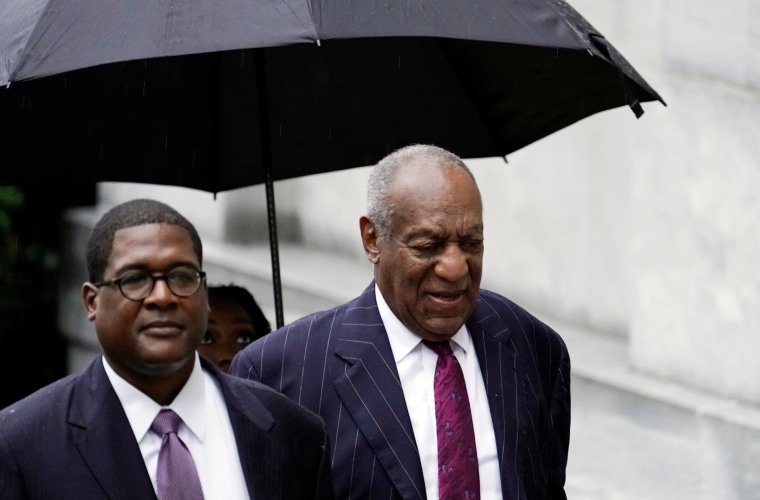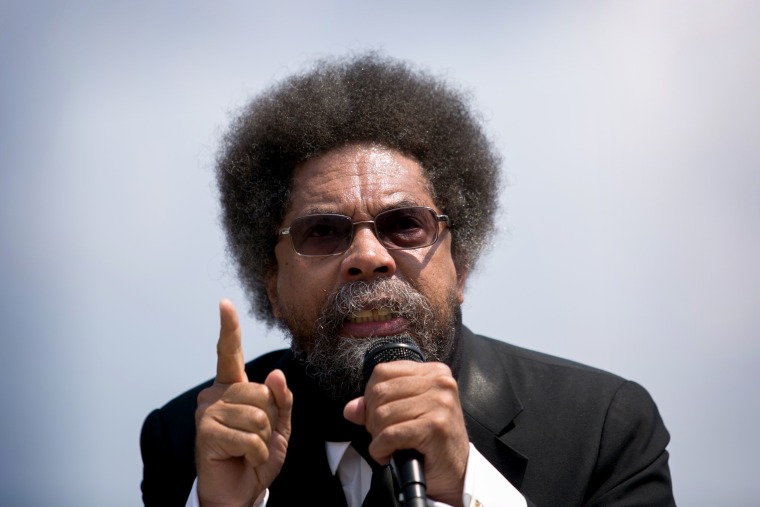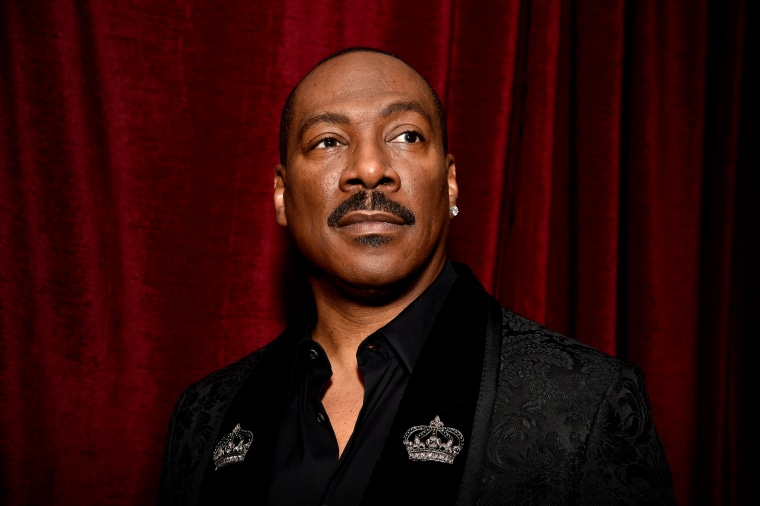Eddie Murphy’s “Saturday Night Live” joke about Bill Cosby evoked much laughter but the response from the disgraced comedian’s publicist who called Murphy a “Hollywood slave” has ignited a firestorm and resurrected a long-standing debate about “black people pulling one another down.”
The reverberation of Murphy’s joke remains in the ether more than a week after he took the pointed swipe at the imprisoned Cosby during his first “SNL” monologue in 35 years.
Public opinion and social media have been split on Murphy but have been in step that Cosby’s publicist Andrew Wyatt was out of bounds. At the same time, the controversy has brought the larger issue of black men publicly criticizing black men back into the public spotlight.
During his triumphant return to SNL, Murphy said of Cosby, who is serving 3-to-10 years in prison for aggravated indecent assault for drugging and sexually assaulting a woman in 2004: “If you would have told me 30 years ago that I would be this boring, stay-at-home house dad and Bill Cosby would be in jail, even I would have took that bet.”

The remark — part of a three-decade long feud between the two comedic stars of their generations — received sustained laughter, sent Twitter into a frenzy and initiated much barbershop, beauty salon and watercooler talk.
Bob Sumner, the co-founder of Def Comedy Jam, the show that elevated black comedy, and the executive producer of the Laff Mobb, was succinct.
“It was just a good joke,” Sumner told NBCBLK. “Perfect timing. The ‘slave’ comment was ridiculous. Have a Coke and a smile.”
The sentiments of Sumner were similar to many who did not find Murphy’s joke offensive.
However, Cosby publicist Wyatt’s response on Twitter sparked a firestorm. “It is sad that Mr. Murphy would take this glorious moment of returning to SNL and make disparaging remarks against Mr. Cosby. One would think that Mr. Murphy was given his freedom to leave the plantation, so that he could make his own decisions; but he decided to sell himself back to being a Hollywood Slave,” the post reads. “Stepin Fetchit plus cooning equals the destruction of Black Men in Hollywood. Remember, Mr. Murphy, that Bill Cosby became legendary because he used comedy to humanize all races, religions and genders; but your attacking Mr. Cosby helps you embark on just becoming click bait.”
There was outrage and disappointment that Wyatt would invoke the imagery of being a “slave” into the debate.
Comedian D.L. Hughley tweeted: “Ain’t no fun when the rabbit got the gun. Have a Coke and a smile….”
The larger issue of the Murphy-Cosby debate can be complicated. For years, the public animus has been characterized as counterproductive and petty. And yet, there is a healthy history of examples.
Film director Spike Lee initiated a “beef” with movie mogul Tyler Perry, when in 2011 he criticized the latter’s work as “buffoonery.”
Perry responded that Lee “could go straight to hell.”
But the two have reconciled. Perry revealed to TMZ in October: “Spike called me years ago. He came to my house, we sat down and had a great conversation. And the beauty is that’s what I hope people understand. When Oprah and I worked together, it was a huge moment. This moment with me and Spike is a huge moment. So I’m hoping that we as people start to come together and understand that, ‘Hey, everything’s all right.’”
The debate about black men such as Murphy and Cosby criticizing each other publicly isn’t limited to entertainment. In fact, the fiery debate has made its way into the political arena - and all the way to the White House.
Many could not understand Harvard scholar Dr. Cornel West and television talk show host Tavis Smiley routinely criticizing President Barack Obama.
West called Obama “the first ‘niggerized’ black president. A ‘niggerized’ black person is a black person who is afraid and scared and intimidated when it comes to putting a spotlight on white supremacy and fighting against white supremacy.”

Smiley was so critical of Obama that he and iconic radio personality Tom Joyner argued and Smiley abruptly disappeared from his daily appearances on the nationally syndicated show.
The reasons for West’s and Smiley’s seeming contempt for Obama, their former friend, are unclear, but there is some speculation: Obama passed on Smiley’s State of the Black Union event while campaigning in 2008, and West did not receive tickets to Obama’s inauguration for himself and his mother.
West’s and Smiley’s issues with Obama seem to be unresolved. But the issue of public back-and-forth between black men troubles many, who find the Murphy-Cosby dispute unsettling.
“I don’t think ‘fair or unfair’ fits this synecdoche,” said Sam Myers, a director of a social service agency near Philadelphia, where Cosby is from. “The question is: Was the joke necessary or unnecessary? (Murphy) could have done his bit without disparaging Bill Cosby and gotten his point across as well. ... For me, it’s another case of kicking a man when he’s down, in particular kicking this black man who paved the way for him to have success.
“At the same time, (Cosby’s publicist) took it to another level that also wasn’t necessary. It looks like black people pulling one another down and who do not know how to adequately enjoy prosperity.”
The Murphy-Cosby strife has deep roots. Murphy expressed his discontent with Cosby in 1987 during his standup film, “Raw.”
“I’m a big fan of Bill Cosby,” Murphy said in the special. “Never met the man, but he called me up about a year ago and chastised me on the phone about being too dirty on the stage. It was real weird because I had never met him and he just thought he should call me up, because he was Bill, and tell me that that isn’t what comedy is all about. I sat and listened to this man chastise me, and when Bill Cosby chastises you, you forget you’re grown, you feel like one of the Cosby kids.”
This summer, Murphy shared on Netflix’ Comedians in Cars Getting Coffee with Jerry Seinfeld: “[Cosby] had a weird thing with me that he didn’t have with other comics. It was mean. He wasn’t nice. He wasn’t doing that with everybody, he was doing that with me specifically. He was s—y with me.”
Clearly, the talk of the dispute will not diminish soon.
“Comedians have shown they have no filter and anyone is fair game,” Sonya Warner-Fields, a lawyer in Los Angeles, said. “Bill Cosby kind of teed this up for Eddie or anyone. He was self-righteous and then turned out to be a convicted felon. It’s funny, sad and ironic at the same time.”
